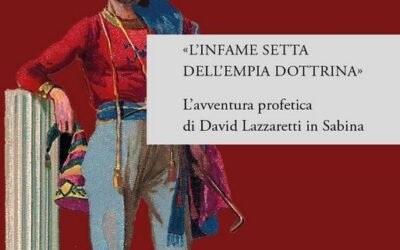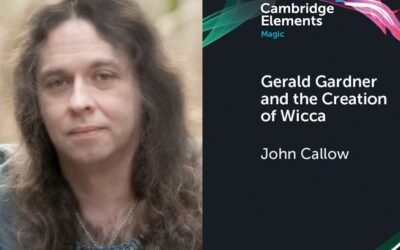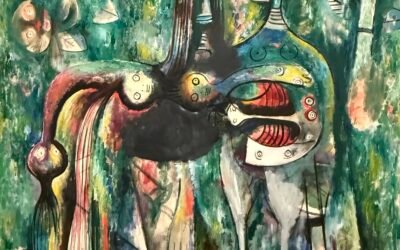The Telegraph’s podcast used a 2019 case to claim that the new child protection policies of the Jehovah’s Witnesses are not followed in practice. This is false.
by Massimo Introvigne
Article 3 of 5. Read article 1, article 2, article 3, article 4, and article 5.
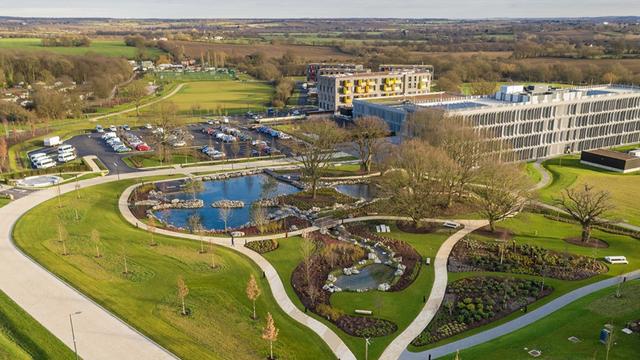
The Telegraph’s podcast claims that the Jehovah’s Witnesses do not effectively protect their children from sexual abusers who are members of their congregations, and in fact their main concern is to hide the abuse cases to protect their reputation. As we have seen in the previous article of this series, the case the podcast devotes more time to concerns Peter Stewart. This is, however, an old case, where the inadequate handling of the incident the Jehovah’s Witnesses were accused of dates back to 1990.
The Jehovah’s Witnesses can easily answer that this was more than thirty years ago, before their new Child Protection Policy was enacted in 2018/19. As mentioned in my first article, when it rendered its report in 2021, the Independent Inquiry into Child Sexual Abuse in England and Wales (IICSA) acknowledged that under the new policy allegations of abuse are reported to the statutory authorities, even when it is not mandated by local laws if a minor is in danger of abuse, and “even if there is only one complainant and no other corroborating evidence” (p. 65, par. 6.3).
Inadequate handling of sexual abuse thirty years ago, while not uninteresting, would not be particularly newsworthy now. To generate interest for its podcast, The Telegraph had to argue that the Jehovah’s Witnesses are still failing to protect their children and hiding abuse today.
The IICSA noted that the Jehovah’s Witnesses provided evidence to demonstrate that the 2018/19 policy is applied in practice (p. 64–66, par. 6.1–6.9). By looking at a case that had already been discussed by the IICSA, The Telegraph tries to prove that in 2019 the Jehovah’s Witnesses were still not cooperating with the police.
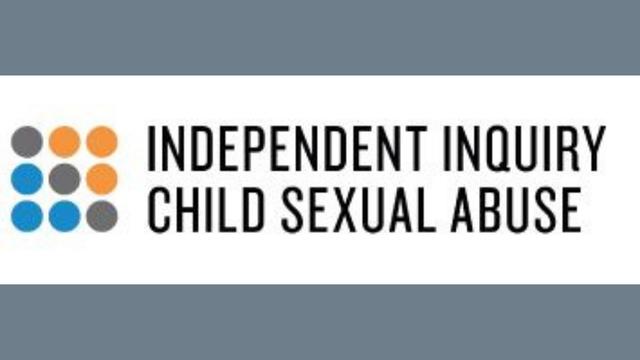
As The Telegraph presents the story, in 2019 a 21-year-old woman introduced as “Lacey Jones” told her mother that her stepfather, Clifford Whitely (spelled “Whiteley” in some documents), had abused her when she was 11. The mother confronted the man, who ended up admitting this had happened once, when he was drunk (although he was later sentenced for three counts of sexual abuse, not one only). The wife reported him to the elders, to whom he repeated his (partial) confession. This was enough to have him disfellowshipped. Lacey’s sister, who had left the Jehovah’s Witnesses, went to the police, and an investigation started.
According to The Telegraph, Detective Philip Endsor of West Midlands Police, who appears in the podcast as a man having little sympathy for the Jehovah’s Witnesses, asked the two elders who had received Whitely’s confession to sign written statements. They asked Detective Endsor to put his request in writing and that they had concerns about the confidentiality of Whitely’s confession. In the podcast, Endsor reports his impression that in fact the elders “were flatly refusing to cooperate in any shape, form or fashion.”
After several months, Endsor wrote that he “needed the elders notes of Clifford Whitely’s confession. Once again, the elders said they were willing to help, but because the notes were confidential religious communication, they’d need Clifford Whitely’s permission, or detective Endsor would have to get a court order.” He did get a court order, with which the Jehovah’s Witnesses complied.
Eventually, Whitely was sentenced to nine years in jail. In The Telegraph’s podcast, we hear Detective Endsor stating, “I do find it difficult to comprehend why they were almost deliberately trying to obscure a legitimate investigation from a young lady who had been sexually assaulted. I’ve got to say, this is probably the most awkward of organisations to deal with.”
With some dramatization, this is the story Endsor had told the IICSA before. However, the IICSA also heard one of the elders involved, Rudi Dobson. The IICSA did not question his veracity. As in the Stewart case, the chronology presented in the podcast is somewhat confused, and the two statements by Dobson to the IICSA help clarify it.

On February 25, 2019, Dobson was informed by Lacey’s mother of her daughter’s accusations against Whitely. He and another elder visited the girl’s home, offered comfort, and informed her and her mother that they had the absolute right to inform the police. Dobson repeated it to Lacey and her sister in a phone conversation that night. On February 26, he was informed they had contacted the police. On February 27, Whitely was arrested and released on bail.
The national Branch Office of the Jehovah’s Witnesses advised the local elders not to proceed against Whitely immediately, not to interfere with the police’s activities. On March 19, an ecclesiastical judicial committee examined the confession Whitely had rendered to the elders and disfellowshipped him.
Detective Endsor first contacted Dobson on March 1, asking for a written statement about the incident. Dobson asked Endsor to put his request in writing, as there might have been questions of confessional privilege and data protection, which he needed to examine with the Branch Office. As Dobson told the IICSA, “The next communication I had with DC Endsor was a telephone call in early to midJuly 2019.
Rather than providing me the list of questions, as I had asked for on 1 March 2019, DC Endsor proceeded to threaten and intimidate me, ridiculing my faith and my activity as a religious minister. He told me that I should resign as a religious minister so that I could then reveal confidential information. When I told him I would not do so, he said: ‘how can you sleep at night?’ I found his actions and threats to be offensive and disturbing.”
After this stormy conversation, on July 24 Endsor wrote to the elders asking to release all documents about Whitely’s confession and disfellowshipping. On August 2, the elders replied that these documents were privileged and they can release them only with Whitely’s own consent; they will however comply with a court order. On October 1, Endsor obtained his court production order, and on October 3 the elders gave him the requested documents.

Although British data protection laws were mentioned, this is also a case of dealing with documents protected by the confessional privilege discussed in the first article in this series. As I mentioned there, a confession may occur even when the sinner confesses to more than one authorized member of his religious organizations and even when notes are taken. Protecting only the one-on-one no-note Catholic model of confession would create an unjustified privilege for the Catholic Church.
Substantially, Whitely had rendered a confession to the elders. This should be protected by the confessional privilege. However, as explained in my first article, there is a difference between the Catholic and the Eastern Orthodox Churches and the Jehovah’s Witnesses. The former believe that the secret of confession is of such a high theological status that their priests are instructed that they should not comply with laws or court orders asking them to release confessional material, and face the consequences. The Jehovah’s Witnesses believe they should respect the laws of the land. As a consequence, even if the material about Whitely was intrinsically of a confessional nature, they gave it to the police once a court order was issued.
They complied with the order within 48 hours. In the podcast, Endsor claims that the case was delayed by the Jehovah’s Witnesses’ tactics. In fact, it was delayed by his own prejudices against the Jehovah’s Witnesses, non-understanding of the law on data protection and confessional privilege, and attempts to bully the elders by threatening and screaming rather than following a normal procedure. He was asked to formulate his requests in writing, and it took Endsor four months to do it. Endsor was told the Jehovah’s Witnesses would have complied with a court production order, but he got it only seven months after he had started his investigation.
The Whitely case does not prove that the Jehovah’s Witness do not respect their own policy on cooperation with secular authorities in cases of sexual abuse of children. It just proves that the religious prejudices of certain police officers may delay the very cases they are investigating.

Massimo Introvigne (born June 14, 1955 in Rome) is an Italian sociologist of religions. He is the founder and managing director of the Center for Studies on New Religions (CESNUR), an international network of scholars who study new religious movements. Introvigne is the author of some 70 books and more than 100 articles in the field of sociology of religion. He was the main author of the Enciclopedia delle religioni in Italia (Encyclopedia of Religions in Italy). He is a member of the editorial board for the Interdisciplinary Journal of Research on Religion and of the executive board of University of California Press’ Nova Religio. From January 5 to December 31, 2011, he has served as the “Representative on combating racism, xenophobia and discrimination, with a special focus on discrimination against Christians and members of other religions” of the Organization for Security and Co-operation in Europe (OSCE). From 2012 to 2015 he served as chairperson of the Observatory of Religious Liberty, instituted by the Italian Ministry of Foreign Affairs in order to monitor problems of religious liberty on a worldwide scale.

